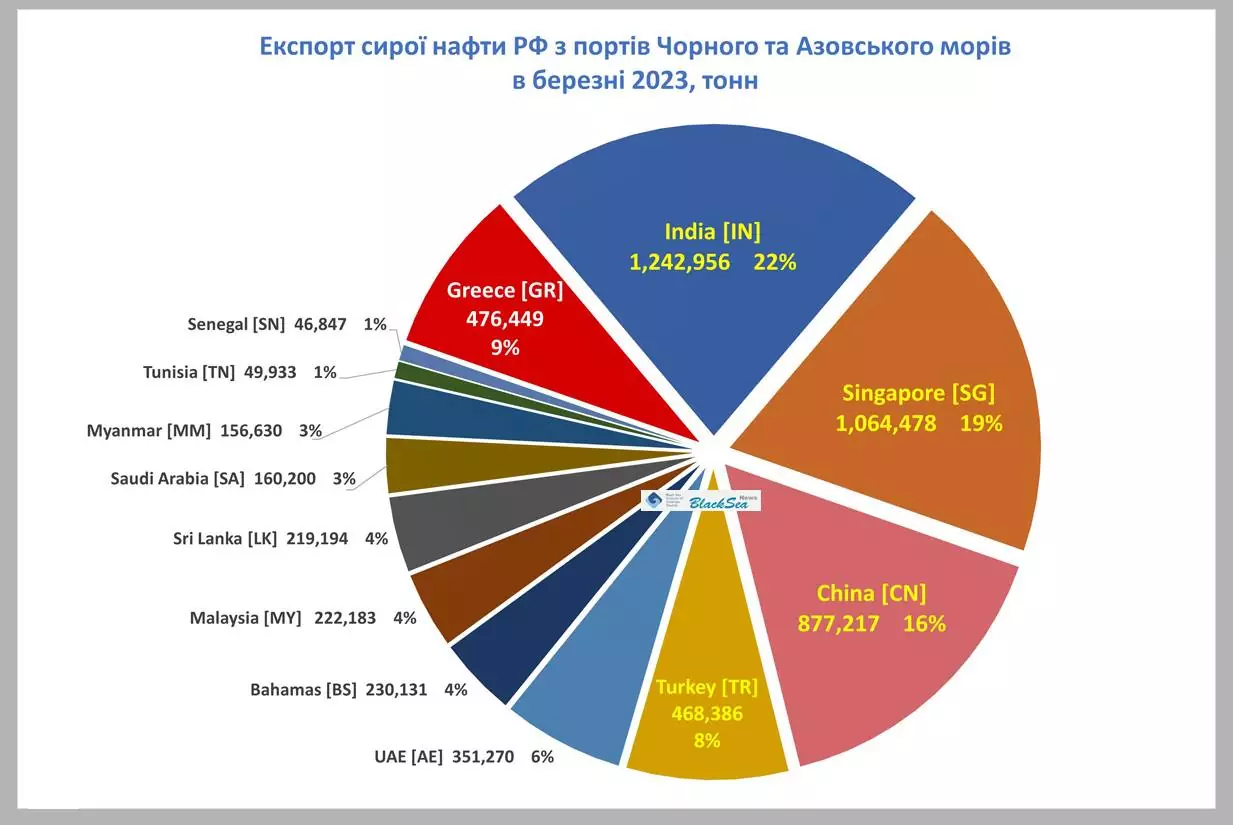Russian crude oil exports from Black Sea ports in March 2023 set a record of 5,565,874 tons, the head of the Black Sea Monitoring Group, Andriy Klymenko reported. That's despite the fact that March became the first month when no tankers with Russian crude oil came directly to the ports of EU countries from the Black Sea.
The Russian March crude oil export is significantly higher than any previous monthly results since April 2022. The average export per month was 3,457,348 tonnes through the Black Sea ports.
This record increase was driven mainly by exports to Asia and Africa, even though the EU and G7 countries mostly followed the oil embargo established on 5 December 2022. Asian and African countries imported 91.4% of the total volume of Russian oil from Black Sea ports in March 2023 – 5,089,425 tons. Also, 476,449 tons were technically transported to Greece for raid transshipment there.

The main importers and drivers of this growth in March 2023 in comparison to February were:
- India (1,242,956 tons, growth – 443,197 tons, 1.6 times)
- Singapore (1,064,478 tons, growth – 949,033 tons, 9.2 times)
- China (877,217 tons, growth – 718,033 tons, 5.5 times)
- Türkiye (468,386 tons, growth – 197,903 tons, 1.7 times)

In March 2023, 45 tankers carried Russian crude oil. Sixteen of them were owned by Greek companies.
"This Russian policy is most likely coordinated with OPEC+. There is no shortage of tanker fleet to ensure these transportations. Control over the compliance of tankers from EU countries with the terms of the contracts ("price cap") is most likely ineffective," Klymenko summarizes.
He also assumes that Russia could be developing a so-called "parallel budget" using its foreign companies in countries to which it exports oil.
"There is a hypothesis that a significant part of Russian money remains in foreign companies connected with Russia. Even the discounts at which their oil is currently sold could be much smaller [than declared], and the difference remains in foreign accounts, used as the Russian Federation needs," Klymenkso says, adding that this aspect should be investigated.





